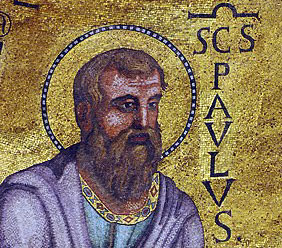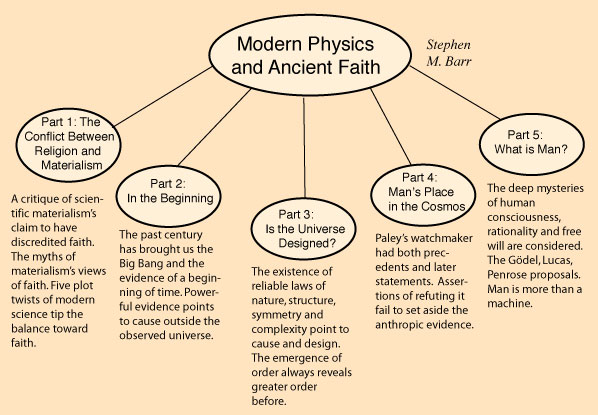THE INTERIOR CASTLE OR
OR
THE MANSIONS
By
St. Teresa of Avila
The Sixth Mansions Chapter 2: Â [powerpress]
For the pdf containing the complete text and footnotes click here
For other audio chapters of “The Interior Castles”
1. Our Lord excites the love of His spouse. 2. The wound of love. 3. The pain it causes. 4. The call of the Bridegroom. 5. Effect on the soul. 6. A spark of the fire of love. 7. The spark dies out. 8. This grace evidently divine. 9. One such wound repays many trials. 10. First reason of immunity from deception. 11. Second and third reasons. 12. The imagination not concerned in it. 13. St. Teresa never alarmed at this prayer. 14. ‘The odour of Thine ointment.’ 15. No reason to fear deception here.
Translated from the Autograph of St. Teresa of Jesus by
The Benedictines of Stanbrook
Thomas Baker, London [1921]
Dom Michael Barrett, O.S.B.Censor Deputatuus
Nihil Obstat:✠Edward Apostolic Administrator Birmingham, Oscott.
February 24, 1921
Tags: catholic, catholic podcast, catholic prayer, cathollc spirituality, st teresa, st. teresa of avila, Teresa of Avila, the interior castle
This entry was posted on Sunday, July 17th, 2011 at 11:49 am
You can follow any responses to this entry through the RSS 2.0 feed.
THE INTERIOR CASTLE OR
OR
THE MANSIONS
By
St. Teresa of Avila
The Sixth Mansions Chapter 3: Â [powerpress]
For the pdf containing the complete text and footnotes click here
For other audio chapters of “The Interior Castles”
1. Locutions. 2. Sometimes caused by melancholia. 3. Caution needed at first. 4. Locutions frequently occur during prayer. 5. Resist those containing false doctrine. 6. First sign of genuine locutions.  7. Effect of the words: ‘Be not troubled.’ 8. ‘It is I, be not afraid.’ 9. ‘Be at Peace.’ 10. Second sign. 11. Third sign. 12. The devil suggests doubts about true locutions. 13. Confidence of the soul rewarded. 14. Its joy at seeing God’s words verified. 15. Its zeal for God’s honour. 16. Locutions coining from the fancy. 17. Imaginary answers given to prayer. 18. A confessor should be consulted about locutions. 19. Interior locutions. 20. First sign of genuine interior locutions. 21. Second sign. 22. Third sign. 23. Fourth sign. 24. Fifth sign. 25. Results of true locutions. 26. They should remove alarm. 27. Answer to an objection.
Translated from the Autograph of St. Teresa of Jesus by
The Benedictines of Stanbrook
Thomas Baker, London [1921]
Dom Michael Barrett, O.S.B.Censor Deputatuus
Nihil Obstat:✠Edward Apostolic Administrator Birmingham, Oscott.
February 24, 1921
Tags: catholic, catholic podcast, catholic prayer, cathollc spirituality, Interior locutions, st. teresa of avila, Teresa of Avila, the interior castle
This entry was posted on Saturday, July 16th, 2011 at 5:02 pm
You can follow any responses to this entry through the RSS 2.0 feed.
Tags: carmelites, catholic, catholic podcast, catholic prayer, cathollc spirituality, our lady of mount carmel
This entry was posted on Saturday, July 16th, 2011 at 12:52 am
You can follow any responses to this entry through the RSS 2.0 feed.
“He will not break a bruised reed until he brings justice to victory”
[powerpress=”daily-scripture”]
an excerpt from today’s reflection by Don Schwager:
How do we achieve success and victory in our lives? In everyone’s life there are key moments or turning points on which the whole of one’s life hinges. The mounting confrontation between the Pharisees and Jesus was such a decisive event and crisis. The religious leaders became intolerant of Jesus because of their prejudice. Nothing that Jesus would do or say from this point on would be right in their eyes. They conspired, not simply to oppose Jesus but to eliminate him. Jesus met this defiance with courage and determination to do his Father’s will. He used the crisis to teach his disciples an important lesson for God’s way to success and victory. The only way to glory in God’s kingdom is through the cross – the cross of suffering and humiliation which Jesus endured for our sake and for our salvation. We, too, are called to take up our cross every day – to die to sin, selfishness, envy, pride, strife, and hatred – and to lay down our lives in humble service and love for one another – just as Jesus did for our sake.
Jesus brings the justice of God’s kingdom tempered with divine love and mercy. He does not bruise the weak or treat them with contempt, but rather shows understanding and compassion. He does not discourage the fainthearted but gives hope, courage, and the strength to persevere through trying circumstances. No trials, failings, and weaknesses can keep us from the mercy and help which Jesus offers to everyone who asks. His grace is sufficient for every moment, every situation, and every challenge we face. When you meet trials and difficulties, do you rely on God’s help and grace?
“Lord Jesus, your love and mercy knows no bounds. Give me strength when I am weak, hope when I am discourged, peace when I am troubled, consolation when I am sad, and understanding when I am perplexed. Make me an instrument of your love and peace to those who are troubled and without hope.”
for the full reflection visit : Daily Reading and Meditation
Tags: catholic, catholic podcast, catholic prayer, cathollc spirituality, don schwager, gospel of matthew, Lord Jesus, the Pharisees and Jesus
This entry was posted on Saturday, July 16th, 2011 at 12:04 am
You can follow any responses to this entry through the RSS 2.0 feed.
 Episode 8 – Dr. Stephen Barr’s “Modern Physics & Ancient Faith” part 1
Episode 8 – Dr. Stephen Barr’s “Modern Physics & Ancient Faith” part 1
[powerpress]
In this episode Dr. Reno examines Faith and Reason through the work of Dr. Stephen Barr’s “Modern Physics and Ancient Faith” and enters into the concept of “Scientific Materialism”.
“Christian Apologetics with Dr. R. R. Reno” explores numerous facets of faith and reason in the life of the Church and the world. Grounded on the work of giants, such as St. Thomas Aquinas, St. Bonaventure, Blessed John Newman, soon-to-be Blessed John Paul II, G. K. Chesterton, Blaise Pascal and Stephen Barr, Dr. Reno helps us to open our minds to make the journey to our hearts.
R. R. Reno is the editor at First Things: A Journal of Religion, Culture, and Public Life, and Professor of Theology, currently on leave from Creighton University. His theological work has been published in many academic journals. Essays and opinion pieces on religion, public life, contemporary culture, and current events have appeared in Commentary, and the Washington Post. In Fighting the Noonday Devil Reno suggests that putting ourselves at the disposal of what is real is what trains us for true piety. His other recent books include Genesis: Brazos Theological Commentary on the Bible and Sanctified Vision: An Introduction to Early Christian Interpretation of the Bible.
Tags: Ancient Faith, catholic, catholic podcast, catholic prayer, cathollc spirituality, creighton university, faith and reason, first things, Modern Physics and Ancient Faith, stephen barr
This entry was posted on Friday, July 15th, 2011 at 8:28 pm
You can follow any responses to this entry through the RSS 2.0 feed.
Mark breaks open St. Paul’s letter to the Romans –

 Exactly who was St. Paul writing to in his letter to the Romans? What was the purpose of the letter? Â What was the message? Â How does it apply to our lives today?
Exactly who was St. Paul writing to in his letter to the Romans? What was the purpose of the letter? Â What was the message? Â How does it apply to our lives today?
[powerpress]
Mark Hart is an author, speaker, director and teacher, Mark’s work both written and spoken, is known across the country and world. While he serves as the Vice President of LIFE TEEN, he is known to tens of thousands simply as the “Bible Geek ®†Mark passionately echoes the gospel to all he encounters. He is as deep as he is funny, and his love for his wife and daughters is second only to his immense love for Jesus Christ.
Visit Mark at www.lifeteen.com
Tags: catholic, catholic podcast, catholic prayer, cathollc spirituality, letter to the Romans, lifeteen, mark hart, Paul's letter to the Romans, romans, st. paul, St. Paul's letter to the Romans Mark
This entry was posted on Friday, July 15th, 2011 at 8:09 pm
You can follow any responses to this entry through the RSS 2.0 feed.
 Episode 10-Listening For Truth– Practical ways of living a life of virtue prayer…one way to listen to friends and even enemies to hear the truth God may be wanting to reveal to us.  The wounds that surface in the healing process. The interior healing that can occur and who should help with that process.
Episode 10-Listening For Truth– Practical ways of living a life of virtue prayer…one way to listen to friends and even enemies to hear the truth God may be wanting to reveal to us.  The wounds that surface in the healing process. The interior healing that can occur and who should help with that process.
[powerpress]
Deacon James Keating, PhD, the director of Theological Formation for the Institute for Priestly Formation, located at Creighton University, in Omaha, is making available to â€Discerning Hearts†and all who listen, his series of programs entitled “Listening For Truthâ€.
Listening for Truth leads men and women in a search for a fuller experience of God that begins in prayer, grows in the rediscovery of our spiritual being, and grounds itself in the truth of Jesus Christ. A presentation of the Christian life as an engagement of the whole person — body, mind, and soul — in the challenge of daily living.
For more information on the “Institute of Priestly Formation†and for other material available by Deacon Keating, just click here
Don’t forget to pickup a copy of “Communion with Christ†, it is one of the best audio sets on prayer…ever!
Check out Deacon Keating’s “Discerning Heart†page
Tags: catholic, catholic podcast, catholic prayer, cathollc spirituality, creighton university, Deacon James Keating, Deacon Keating, institute for priestly formation, james keating, theological formation, virtue
This entry was posted on Friday, July 15th, 2011 at 6:39 pm
You can follow any responses to this entry through the RSS 2.0 feed.
THE INTERIOR CASTLE
OR
THE MANSIONS
By
St. Teresa of Avila
The Sixth Mansions Chapter 4:
[powerpress]
For the pdf containing the complete text and footnotes click here
1. Courage required by the soul for the divine espousals. 2. Raptures. 3. Rapture caused by the spark of love. 4. The powers and senses absorbed. 5. Mysteries revealed during ecstasies. 6. These mysteries are unspeakable. 7. Moses and the burning bush. 8. Simile of the museum. 9. St. Teresa’s visit to the Duchess of Alva. 10. Joy of the soul during raptures. 11. No imaginary vision. 12. True and false raptures. 13. Revelations of future bliss. 14. The soul’s preparation. 15. The soul blinded by its faults. 16. God ready to give these graces to all. 17. Faculties lost during ecstasy. 18. Spiritual inebriation. 19. Fervour and love of suffering left in the soul. 20. Scandal caused to spectators by such favours. 21. Our Lord’s predilection for such a soul. 22. Illusionary raptures
Translated from the Autograph of St. Teresa of Jesus by
The Benedictines of Stanbrook
Thomas Baker, London [1921]
Dom Michael Barrett, O.S.B.Censor Deputatuus
Nihil Obstat:✠Edward Apostolic Administrator Birmingham, Oscott.
February 24, 1921
Tags: catholic, catholic podcast, catholic prayer, cathollc spirituality, st. teresa of avila, Teresa of Avila, the interior castle, THE INTERIOR CASTLE OR THE MANSIONS
This entry was posted on Friday, July 15th, 2011 at 4:12 pm
You can follow any responses to this entry through the RSS 2.0 feed.
“I desire mercy and not sacrifice”
[powerpress=”daily-scripture”]
an excerpt from today’s reflection by Don Schwager:
What does the commandment “keep holy the Sabbath” require of us? Or better yet, what is the primary intention behind this command? The religious leaders confronted Jesus on this issue. The “Sabbath rest” was meant to be a time to remember and celebrate God’s goodness and the goodness of his work, both in creation and redemption. It was a day set apart for the praise of God, his work of creation, and his saving actions on our behalf. It was intended to bring everyday work to a halt and to provide needed rest and refreshment. Jesus’ disciples are scolded by the scribes and Pharisees, not for plucking and eating corn from the fields, but for doing so on the Sabbath. In defending his disciples, Jesus argues from the scriptures that human need has precedence over ritual custom. In their hunger, David and his men ate of the holy bread offered in the Temple. Jesus also quoted of the Sabbath work involved in worship in the Temple. This kind of work was usually double the work of worship on weekdays. Jesus then quotes from the prophet Hosea (6:6): I desire mercy, and not sacrifice. While the claims of ritual sacrifice are important to God, mercy and kindness in response to human need are even more important. Do you honor the Lord in the way you treat your neighbor and celebrate the Lord’s Day?
“Lord, make us to walk in your way: Where there is love and wisdom, there is neither fear nor ignorance; where there is patience and humility, there is neither anger nor annoyance; where there is poverty and joy, there is neither greed nor avarice; where there is peace and contemplation, there is neither care nor restlessness; where there is the fear of God to guard the dwelling, there no enemy can enter; where there is mercy and prudence, there is neither excess nor harshness; this we know through your Son, Jesus Christ our Lord.” (Prayer of Francis of Assisi, 1182-1226)
for the full reflection visit : Daily Reading and Meditation
Tags: catholic, catholic podcast, catholic prayer, cathollc spirituality, don schwager, gospel of matthew
This entry was posted on Friday, July 15th, 2011 at 6:34 am
You can follow any responses to this entry through the RSS 2.0 feed.
THE INTERIOR CASTLE
OR
THE MANSIONS
By
St. Teresa of Avila
The Sixth Mansions Chapter 5:
[powerpress]
For the pdf containing the complete text and footnotes click here
1. The flight of the spirit. 2. Self-control completely lost. 3. Symbol of the two cisterns. 4. Obligations following the se favours. 5. Humility produced by them. 6. How our crucified Lord comforted such a soul. 7. A humble soul fears these favours. 8. Mysteries learnt during the flight of the spirit. 9. Imaginary visions sometimes accompany intellectual ones. 10. How the flight of the spirit takes place. 11. The soul fortified by it. 12. Three great graces left in the soul. 13. The third grace. 14. Fear caused by this favour.
Translated from the Autograph of St. Teresa of Jesus by
The Benedictines of Stanbrook
Thomas Baker, London [1921]
Dom Michael Barrett, O.S.B.Censor Deputatuus
Nihil Obstat:✠Edward Apostolic Administrator Birmingham, Oscott.
February 24, 1921
Tags: catholic, catholic podcast, catholic prayer, cathollc spirituality, st. teresa of avila, Teresa of Avila, the interior castle, THE INTERIOR CASTLE OR THE MANSIONS
This entry was posted on Thursday, July 14th, 2011 at 6:37 pm
You can follow any responses to this entry through the RSS 2.0 feed.
“Take my yoke upon you and learn from me”
[powerpress=”daily-scripture”]
an excerpt from today’s reflection by Don Schwager:
Jesus contrasts intellectual pride with child-like simplicity and humility. The simple of heart are like “babes” in the sense that they see purely without pretense and acknowledge their dependence and trust in the one who is greater, wiser, and more trustworthy. They seek one thing – the “summum bonum” or “greatest good” who is God himself. Simplicity of heart is wedded with humility, the queen of virtues, because humility inclines the heart towards grace and truth. Just as pride is the root of every sin and evil, so humility is the only soil in which the grace of God can take root. It alone takes the right attitude before God and allows him as God to do all. God opposes the proud, but gives grace to the humble (Proverbs 3:34, James 4:6). Only the humble in heart can receive true wisdom and understanding of God and his ways. Do you submit to God’s word with simple trust and humility?
Jesus makes a claim which no one would have dared to make – he is the perfect revelation of God. One of the greatest truths of the Christian faith is that we can know the living God. Our knowledge of God is not simply limited to knowing something about God, but we can know God personally. The essence of Christianity, and what makes it distinct from Judaism and other religions, is the knowledge of God as our Father. Jesus makes it possible for each of us to personally know God as our Father. To see Jesus is to see what God is like. In Jesus we see the perfect love of God – a God who cares intensely and who yearns over men and women, loving them to the point of laying down his life for them upon the Cross. Jesus is the revelation of God – a God who loves us completely, unconditionally, and perfectly. Jesus also promises that God the Father will hear our prayers when we pray in his name. That is why Jesus taught his followers to pray with confidence, Our Father who art in heaven ..give us this day our daily bread.  Do you pray to your Father in heaven with joy and confidence in his love and care for you?
 “Lord Jesus, give me the child-like simplicity and purity of faith to gaze upon your face with joy and confidence in your all-merciful love. Remove every doubt, fear, and proud thought which would hinder me from receiving your word with trust and humble submission.”
for the full reflection visit : Daily Reading and Meditation
Tags: catholic, catholic podcast, catholic prayer, cathollc spirituality, don schwager, gospel of matthew
This entry was posted on Thursday, July 14th, 2011 at 6:45 am
You can follow any responses to this entry through the RSS 2.0 feed.
Find more on Fr. Flanagan here
Tags: Boystown, catholic, catholic podcast, catholic prayer, cathollc spirituality, fr. Flanagan
This entry was posted on Wednesday, July 13th, 2011 at 10:06 pm
You can follow any responses to this entry through the RSS 2.0 feed.
THE INTERIOR CASTLE
OR
THE MANSIONS
By
St. Teresa of Avila
The Sixth Mansions Chapter 6:
[powerpress]
For the pdf containing the complete text and footnotes click here
1. The soul longs for death. 2. The soul cannot help desiring these favours. 3. St. Teresa bewails her inability to serve God. 3. Fervour resulting from ecstasies. 5. Excessive desires to see God should be restrained. 6. They endanger health. 7. Tears often come from Physical causes. 8. St. Teresa’s own experience. 9. Works, not tears, are asked by God. 10. Confide entirely in God. 11. The jubilee of the soul. 12. Impossibility of concealing this joy. 13. The world’s judgment of this jubilee. 14. Which is often felt by the nuns of St. Joseph’s. 15. The Saint’s delight in this jubilee.
Translated from the Autograph of St. Teresa of Jesus by
The Benedictines of Stanbrook
Thomas Baker, London [1921]
Dom Michael Barrett, O.S.B.Censor Deputatuus
Nihil Obstat:✠Edward Apostolic Administrator Birmingham, Oscott.
February 24, 1921
Tags: catholic, catholic podcast, catholic prayer, cathollc spirituality, st teresa, st. teresa of avila, Teresa of Avila, THE INTERIOR CASTLE OR THE MANSIONS
This entry was posted on Wednesday, July 13th, 2011 at 12:48 pm
You can follow any responses to this entry through the RSS 2.0 feed.
“Heavenly things revealed to babes”
[powerpress=”daily-scripture”]
an excerpt from today’s reflection by Don Schwager:
Jesus contrasts intellectual pride with child-like simplicity and humility. The simple of heart are like “babes” in the sense that they see purely without pretense and acknowledge their dependence and trust in the one who is greater, wiser, and more trustworthy. They seek one thing – the “summum bonum” or “greatest good” who is God himself. Simplicity of heart is wedded with humility, the queen of virtues, because humility inclines the heart towards grace and truth. Just as pride is the root of every sin and evil, so humility is the only soil in which the grace of God can take root. It alone takes the right attitude before God and allows him as God to do all. God opposes the proud, but gives grace to the humble (Proverbs 3:34, James 4:6). Only the humble in heart can receive true wisdom and understanding of God and his ways. Do you submit to God’s word with simple trust and humility?
Jesus makes a claim which no one would have dared to make – he is the perfect revelation of God. One of the greatest truths of the Christian faith is that we can know the living God. Our knowledge of God is not simply limited to knowing something about God, but we can know God personally. The essence of Christianity, and what makes it distinct from Judaism and other religions, is the knowledge of God as our Father. Jesus makes it possible for each of us to personally know God as our Father. To see Jesus is to see what God is like. In Jesus we see the perfect love of God – a God who cares intensely and who yearns over men and women, loving them to the point of laying down his life for them upon the Cross. Jesus is the revelation of God – a God who loves us completely, unconditionally, and perfectly. Jesus also promises that God the Father will hear our prayers when we pray in his name. That is why Jesus taught his followers to pray with confidence, Our Father who art in heaven ..give us this day our daily bread.  Do you pray to your Father in heaven with joy and confidence in his love and care for you?
 “Lord Jesus, give me the child-like simplicity and purity of faith to gaze upon your face with joy and confidence in your all-merciful love. Remove every doubt, fear, and proud thought which would hinder me from receiving your word with trust and humble submission.”
for the full reflection visit : Daily Reading and Meditation
Tags: catholic, catholic podcast, catholic prayer, cathollc spirituality
This entry was posted on Wednesday, July 13th, 2011 at 6:57 am
You can follow any responses to this entry through the RSS 2.0 feed.
THE INTERIOR CASTLE
OR
THE MANSIONS
By
St. Teresa of Avila
The Sixth Mansions Chapter 7:
[powerpress]
For the pdf containing the complete text and footnotes click here
1. Sorrow for sin felt by souls in the Sixth Mansion. 2. How this sorrow is felt. 3. St. Teresa’s grief
for her past sins. 4. Such souls, centred in God, forget self-interest. 5. The remembrance of divine benefits increases contrition. 6. Meditation on our Lord’s Humanity. 7. Warning against discontinuing it. 8. Christ and the saints our models. 9. Meditation of contemplatives. 10. meditation during aridity. 11. We must search for God when we do not feel His presence. 12. Reasoning and mental prayer. 13. A form of meditation on our Lord’s Life and Passion. 14. Simplicity of contemplatives’ meditation. 15. Souls in every state of prayer should think of the Passion. 16. Need the example of Christ and the saints. 17. Faith shows us our Lord as both God  and Man. 18. St. Teresa’s experience of meditation on the sacred Humanity. 19. Evil of giving up such meditation.
Translated from the Autograph of St. Teresa of Jesus by
The Benedictines of Stanbrook
Thomas Baker, London [1921]
Dom Michael Barrett, O.S.B.Censor Deputatuus
Nihil Obstat:✠Edward Apostolic Administrator Birmingham, Oscott.
February 24, 1921
Tags: catholic, catholic podcast, catholic prayer, cathollc spirituality, st teresa, st. teresa of avila, THE INTERIOR CASTLE OR THE MANSIONS
This entry was posted on Tuesday, July 12th, 2011 at 12:36 pm
You can follow any responses to this entry through the RSS 2.0 feed.






